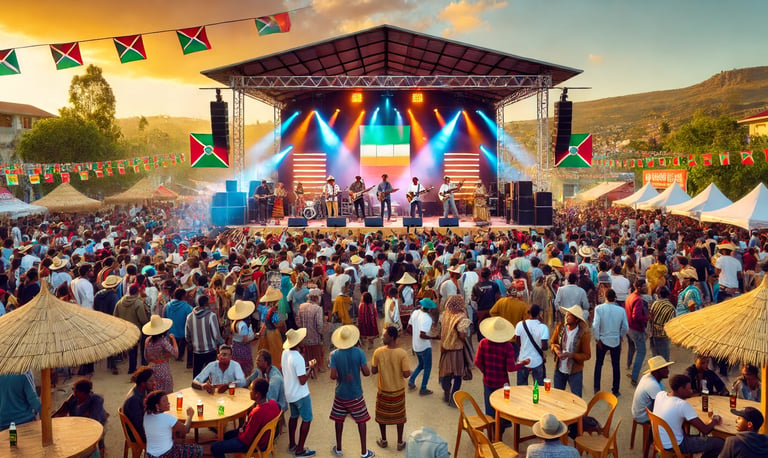Why the Wakawaka Festival in Sambava Didn’t Live Up to the Triatria Festival in Antalaha
Why the Wakawaka Festival in Sambava Didn’t Live Up to the Triatria Festival in Antalaha
CULTURAL EVENT AND ENTERTAINMENT
written by Candidier
2/7/20253 min read


We keep comparing Antalaha and Sambava, from the look of the streets to the economy and even the beauty of the girls hahaha 😂. But guess what, now it’s the Wakawaka Festival and Triatria Festival.
When we think about festivals in Madagascar, two events stand out from the recent time: the Triatria Festival in Antalaha and the Wakawaka Festival in Sambava. Both promised unforgettable experiences, but when the dust settled, it was clear which one succeeded and which one didn’t quite hit the mark.
Let’s break down the reasons why the Wakawaka Festival struggled, compared to the overwhelming success of Triatria.Triatria, held just a month ago, was organized by none other than Big Mj, a phenomenal national and international artist born and raised in Antalaha. This event wasn’t just another festival; it was a celebration of hometown. Big Mj didn’t just perform—he connected with his roots, encouraging his hometown to come together and support the event as if it were their own. And guess what? They did.
Big Mj (post from his Facebook page):”This is OUR festival, Antalaha! Let’s show the world what we’re made of!”
But in Sambava, things were different. The Wakawaka Festival, organized by a group of people including Selby Booking—an african booking agency for artists—didn’t have the same local ownership. People of Sambava felt disconnected from the event. They knew this festival wasn’t “theirs.” And as a result, many decided to enjoy their drinks and hang out outside the venue, rather than paying for the concerts.
Another crucial factor in the success of Triatria was its advertising strategy. Triatria didn’t just rely on social media. They went big with traditional methods—billboards and radio. La Radio RNA, a major radio station in the region, played a huge role in spreading the word. Huge billboards were placed around town, highlighting the artists who would be performing. This gave people a clear idea of which concerts to attend, sparking excitement days before the festival even started.
On the other hand, the Wakawaka Festival made a major misstep by relying heavily on social media for promotion. While Facebook is growing in Madagascar, it’s still not the most effective tool for reaching everyone. With only about 1.5 million active users, social media alone couldn’t generate the same buzz that traditional advertising did for Triatria.
Now, let’s talk about price. In tough economic times, people are more conscious of what they’re spending. Both festivals sold tickets and T-shirts, but the pricing difference was significant. For Wakawaka, the ticket price was 20,000 Ar, and their festival T-shirts were priced at 35,000 Ar. On the other hand, Triatria kept their tickets affordable at just 10,000 Ar, and their T-shirts were much cheaper—ranging from 15,000 to 20,000 Ar.The result? Triatria’s T-shirts sold out on the first day. People were even reselling them for a profit. The lower ticket prices meant more people could afford to attend, and the merch became a hot commodity. Wakawaka? Not so much. The high prices deterred many from even buying a ticket.
In the end, the key to Triatria’s success was simple: strong local support, a well-balanced advertising approach, and prices that catered to the community’s needs. Meanwhile, the Wakawaka Festival lacked that same local connection, made a critical error in advertising, and priced itself out of reach for many.I’ve seen both sides—having lived in Antalaha and attended Wakawaka in Sambava—and the lessons are clear. Festivals need more than just great music; they need to connect with the heart of the people. And that’s something that Triatria Festival did right, while Wakawaka missed the mark.
Thanks for reading, and don’t forget to share your thoughts with us in the comments. What could the Wakawaka Festival have done differently to succeed? We’d love to hear your perspective. See you next time.
—-
[Credits to]
Bartox Consulting
Candidier Dimbiarijaonina
